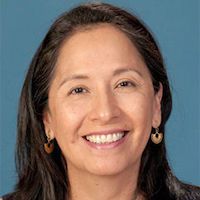ACP Launches Online Quality Improvement, Coaching Service for Patient Care
The ACP Advance program will connect individuals or organizations with a expert coach for a 12-month service plan.

Ana Maria Lopez, MPH
The American College of Physicians (ACP) has launched a new quality improvement (QI) program designed to coach organizations and physicians in improved patient care.
The ACP Advance, launched in alignment with the start of the ACP 2019 Internal Medicine Annual Meeting in Philadelphia, PA, this morning, will provide subscribed individuals and organizations with a 12-month tailored coaching program that includes a curriculum and access to online training courses and resources.
In announcing the new program, ACP President Ana Maria Lopez, MPH, put emphasis on the value of improving patient care for healthcare teams with the new QI program.
According to the ACP, the curriculum integrates 4 pillars for success:
- Clinician engagement and ownership
- Teambased care
- Patient and family partnership
- Maximizing efficiency while minimizing burden
The ACP Advance QI programs and resources for chronic care span to conditions including adult immunization, atrial fibrillation, chronic pain, safe opioid prescribing, and diabetes. The program will be available for individual ACP members and subscribers, while non-members can access the curriculum for a fee.
Cynthia Smith, MD, vice president of Clinical Programs at ACP, said the program is the result of a task force’s efforts to survey and focus-group with ACP members. The end product is an equation of what physicians need to succeed “in the era of value-based payment and population health.”
Smith noted pros and cons to the survey results—namely that most physicians are driven to maintain productivity throughout their day, but are burdened by limited time. As such, the ACP Advance was designed to serve as a time-neutral practice.
“What we heard over and over again was, ‘Whatever you do, don’t send me to another online toolkit in a vacuum’,” Smith said. “We’re hoping we got it right, but as with all good quality improvement projects, this will be an integrative process.”
The physician coaching service provides insight from experts in the field who have had successes in their own practices under value-based payment. They will work with assigned individuals and teams to identify and address gaps of care. The intent is to put physicians and groups “back in the driver seat again,” Smith explained.
“I think that’s one of the reasons why quality improvement became a bit of a dirty word for clinicians—it just felt like it was one more thing they were being asked to do when they were barely making it through the day,” she said. “This does put the human touch and connection on that.”
Over the 12 months of QI service, users will retain the same coach and access to a cohort of organizations seeking the same goals as them. The service will also make continuing medical education (CME) and maintenance of certification (MOC) points available for physicians participating in the coaching and/or curriculum.
Overall, the benefit should be reserved for physicians and patients alike.
“Success in quality improvement improves patient outcomes,” López said. “Making meaningful practice changes improves physician well-being because it promotes a positive culture and empowers physicians and their teams to engage in QI that helps achieve quality goals that matter.”